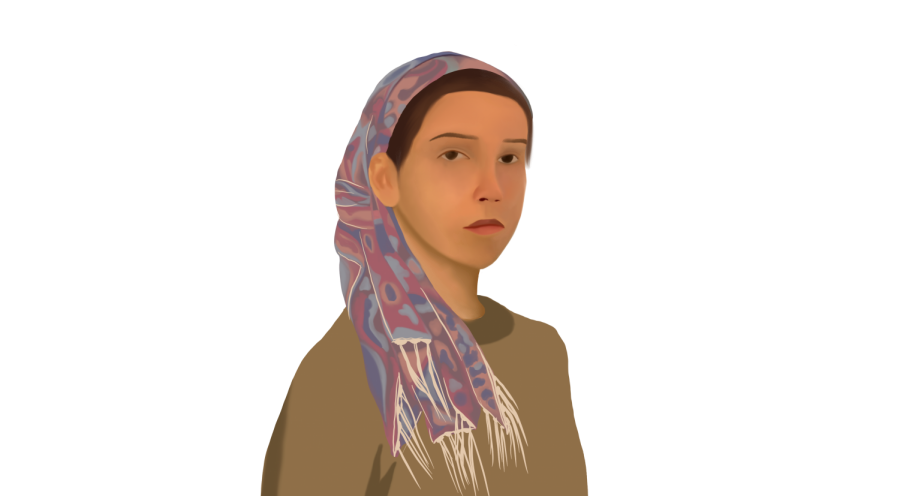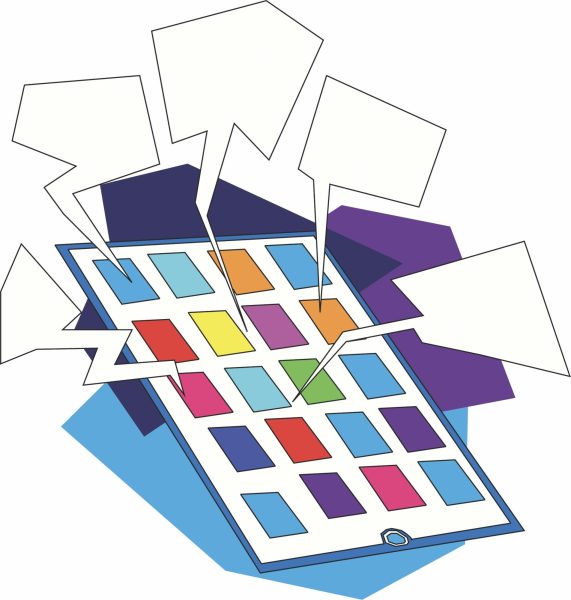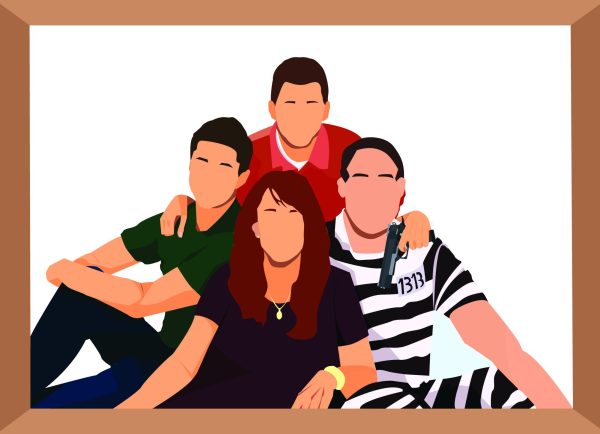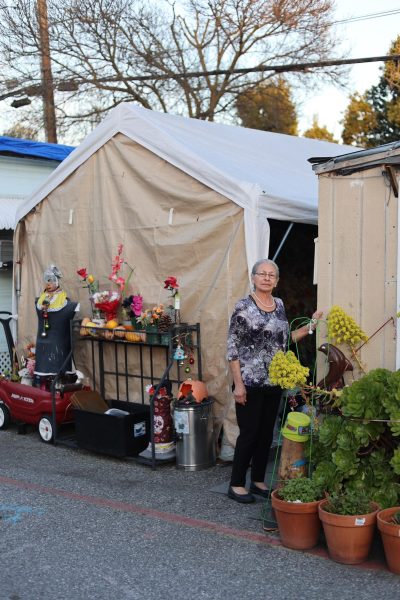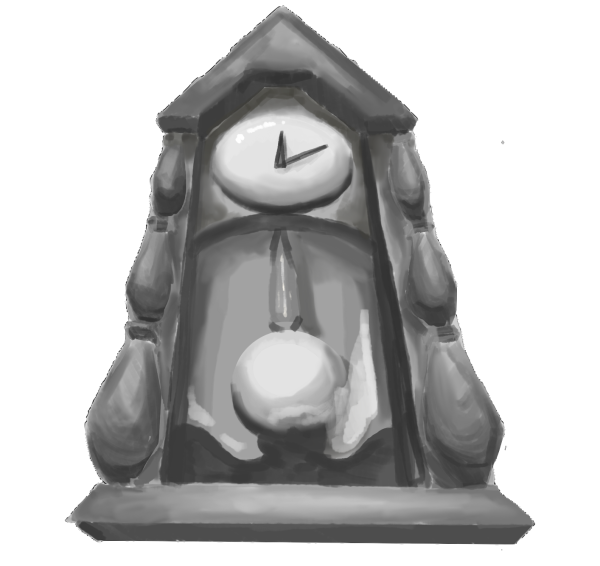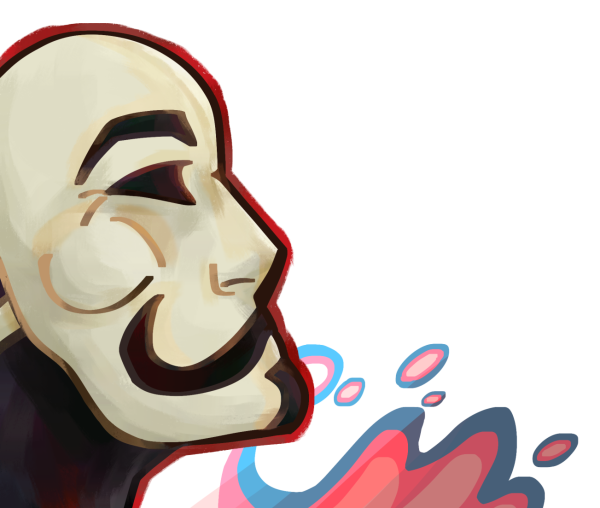Opening My Eyes
After Capitol protests: insights on my journey with antisemitism
March 25, 2021
I was angry when I first heard about the protests at the Capital. I couldn’t believe what was happening. But when I turned on the TV to watch the live footage, it felt like my heart stopped. I actually felt ice in my veins, as cliché as it sounds. As soon as I saw the t-shirts bearing “6M wasn’t enough,” I knew immediately what they meant, even if they hadn’t been coupled with swastikas and shirts reading “Camp Auschwitz.”
I turned off the TV and took a nap. My grandma called me later to talk about it. I changed the topic as soon as I could.
It’s hard for me to think about antisemitism, especially when I’m thinking about it in relation to me. It’s far too easy to separate myself from all of it, think of it as a “not here, not me” thing, and even easier to ignore news about it. It simply isn’t given as much national attention. I often don’t hear about Jewish issues unless I actively seek out information from Jewish communities.
But it’s hard to ignore that things are getting worse. Antisemitic incidents in the U.S. hit a four-decade high in 2019, according to the Anti-Defamation League’s internal tracking. The spree of violent hate crimes over Hanukkah is indicative of this increase. But the general national opinion still seems to believe that antisemitism is dwindling, or, worse, has ceased to exist, ending with the Holocaust. It’s just not treated as an issue that needs addressing, which is exactly what has allowed it to get to this proportion.
While important civil rights movements in the last couple of years have finally started to change from social conversations to political movements, antisemitism has been left behind. It’s a cycle—as anti-Jewish sentiment isn’t thought of as a serious issue, little action is taken on it outside the Jewish community. This results in the problem being further neglected and rarely discussed.
Hating Jews seems almost universal, in that people of all social and political backgrounds across the world can be antisemitic. Racism has become associated with certain places and groups with deep-rooted histories of oppression. Antisemitism has no such associations, instead being found across all cultures and countries. This universality has the effect of making it seem invisible while making it so much harder to fight.
This persisting international negligence is not only dangerous but nearly inescapable. One of the things I struggled with the most in writing this article was having to convince myself over and over again that this is a worthy topic and I’m not simply making it all up. I consider myself an activist; I’ve tried to stay up-to-date and engaged with all the incredible, life-changing social movements happening right now. Yet when it comes to my own experiences with prejudice, I can’t seem to do anything.
Sometimes, when I’m with other Jews, I can rant about the prevalence of antisemitism and share my anger and fears. But most of the time, I buy into the lie that our country tells itself. “Antisemitism isn’t that bad,” I think. “It’s not nearly as bad as what other people face. Why should I complain? No one’s talking about it, it must not be important.
“I should just get over it.”
But most of the time, I buy into the lie that our country tells itself. “Antisemitism isn’t that bad,” I think. “It’s not nearly as bad as what other people face. I should just get over it.”
One thing frequently questioned is why insignia and terms from decades and even centuries ago are still hurtful to the Jewish community. This is because of generational trauma: the pain accumulated over generations of hardship that is passed down to descendants. Generational trauma is especially prominent in Judaism; as it is an ethno-religion passed down and sustained through generations, this strong connection to our ancestors is a big part of Jewish culture and religion.
This sense of connection to our ancestors, and by extension, our ancestors’ pain, stems from a major principle in Judaism: we are our ancestors. All of our ancestors’ struggles going back to before the Torah are treated as our own. Over Passover, we don’t say “our ancestors escaped from Egypt,” we say “we escaped from Egypt.” These events hold over, and we remember and honor them during our holidays.
Similarly, we don’t say “our ancestors lived through the Holocaust,” we say “we lived through the Holocaust.” That is why when I see antisemitic insignia relating to the Holocaust like swastikas or “6M was never enough,” it sends the loud-and-clear message of “I want you dead.”
It’s taken me a long time to come to terms with this. As bad as it sounds, I’ve barely engaged with Jewish issues since my article last year, “The Disloyalty Charge,” and even then I wrote it disconnected from myself. I block out antisemitism, my mantra of “not here, not me” keeping me safe and sheltered.
I don’t know what it is about the Capital protests. Maybe it’s because antisemitism is finally in the national spotlight and being treated with importance, maybe it’s because it’s the first antisemitic news in a long time I just couldn’t ignore. But witnessing the antisemitism at the Capital riots changed something for me. I realized how I’ve purposefully disconnected myself from this part of my heritage, and how essential it is for me to undo that.
Over the pandemic, I’ve been growing spiritually and trying to get back in touch with Judaism, reconnecting with Jewish culture and community. But I can’t make any progress on my religious journey until I reconcile myself with this part of it.
As a Jew and a journalist, it is my duty to research, discuss, and report on social and political issues related to the Jewish community. I can’t let myself avoid this anymore.
Being Jewish is a part of who I am, which makes the pain of my ancestors a part of who I am, and I take on the responsibility of carrying those memories and fighting for a better future. As a Jew and a journalist, it is my duty to research, discuss, and report on social and political issues related to the Jewish community. I can’t let myself avoid this anymore.
I hope the blatant prejudice displayed at the Capitol protests will awaken more to the reality of antisemitism. I hope this event will change the national narrative on antisemitism and bring some attention to it. I hope I’m strong enough to keep caring and keep finding the willpower and conviction to fight. I hope others will fight with me.
Maybe generations from now, my descendants will be able to look back on this time and say “we fought for recognition, and we won.”
